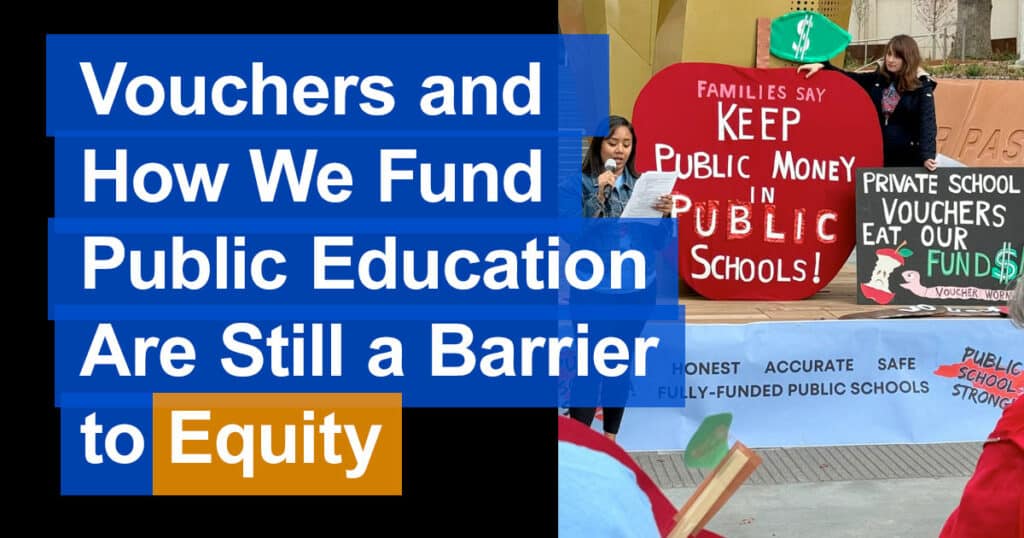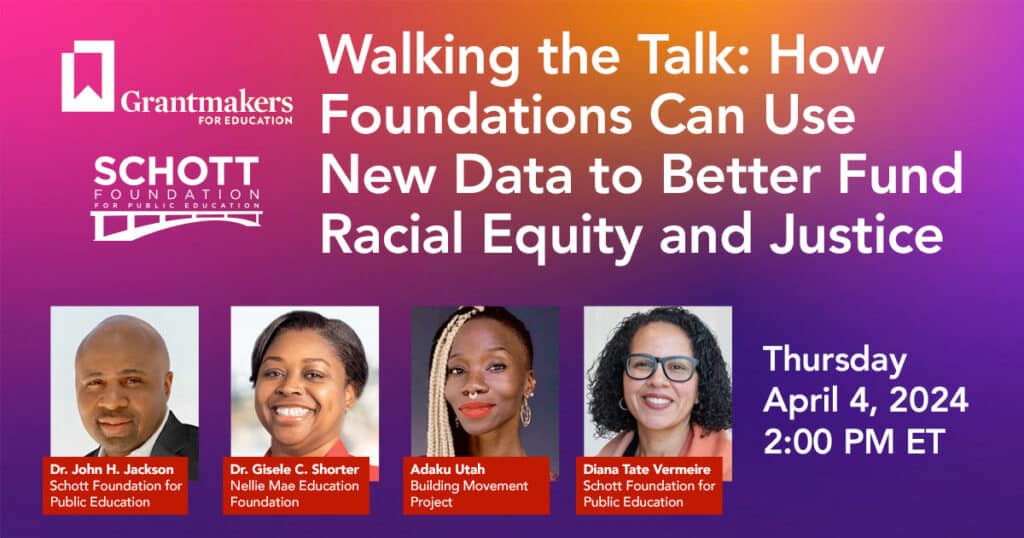Blog
How to Build Inclusive Leadership in Philanthropy
In this new age of political uncertainty and social unrest, leaders of color will be key to navigating philanthropy’s future. The Schott Foundation for Public Education was proud to present a two-part webinar series highlighting 21st Century Inclusive Leadership in Philanthropy.
Moderated by Casey Family Programs’ Toya Randall, our first conversation highlighted three philanthropic leaders from across the country:
- Kirsten Levingston, Wellspring Advisors, LLC
- Antoinette Malveaux, Casey Family Programs
- Sherece West-Scantlebury, Ph.D., Winthrop Rockefeller Foundation
The conversation kicked off with a discussion of an in-depth article from Deloitte Insights, which covers “six signature traits” of inclusive leadership:
Consider how inclusive leadership—as well as the broader principles of diversity and inclusion—fit within the organization’s innovation strategy and processes. For example, in undertaking ideation or problem-solving activities, ensure that leaders assemble teams that are diverse in their thinking and that individual and group biases are mitigated in group discussions.
A central component of inclusive leadership is understanding the leadership qualities and attributes of everyone in one’s team. “Leadership also requires followership,” Antoinette Malveaux said. “I come to the work with an understanding and appreciation that everybody is a leader irrespective of the title they carry… they have something to offer.”
An inclusive leader is also a responsive leader. “Being able to listen, to learn, to act and take feedback really requires dying to ego,” Sherece West-Scantlebury said. “I’ve met folk who think they’re inclusive, and then you get in a room with them and they do all the talking.”
Inclusive leadership also requires accountability — not just to those above you, but to those who report to you. “Accountability and integrity are critical elements of any style of leadership, and they require more attention. If I’m not accountable or I don’t have integrity, I’m not leading,” Antoinette Malveaux said. Accountability to oneself is critical as well. As Toya Randall put it, “If you don’t trust yourself, and you’re not grounded in your own truth about what you bring to the table, then it’s very difficult to trust others.”
Kirsten Levingston pointed out how it can be tough for those new to the field if their supervisors are not inclusive leaders, and how in those cases the best source for guidance, motivation and help can sometimes come from outside their organization. From individual mentors to affinity groups and associations like EPIP, there are resources out there if people look for them.
Our second conversation focused on the benefits of inclusive leadership and the influence of this practice on direct reports. Moderated by Toya Randall, the speakers included:
- Sana Jafri, Chicago Community Trust
- Will Cordery, Wellspring Advisors, LLC
- Trista Harris, Minnesota Council on Foundations
- Takema Robinson, Converge
Our participants discussed how inclusive leadership drives innovation, performance and productivity. They highlighted the tangible benefits they’ve gained as the direct report of inclusive leaders and discussed their own growth as inclusive leaders in their own right.
The conversation began with a recognition of the origins of philanthropy and how those origins shaped the structure of the sector itself to be hierarchical, slow-moving, and rigid. As participants discussed prospects for reshaping philanthropy, Sana Jafri mentioned the importance of alternative leadership models: “in my own organization one thing that helped us as a team in helping us drive our work is to have more distributed leadership.” Trista Harris emphasized the importance of leading “where you are,” not waiting for a formal leadership role, but taking leadership opportunities regardless of one’s position in the organization.
Takema Robinson reminded us that tough questions shouldn’t be aimed at grantees, but also ourselves: “as much as philanthropy can ask really good questions of grantees, we need to ask the same questions about ourselves.” When it comes to matters of equity and racial inclusion, “How good are we as a field at living and internalizing those values and practices?”
The danger of disconnect between philanthropy and the daily work of grantees and social movements was a point emphasized by all the panelists. As Will Cordery recounted, “I knew I had a large responsibility to be of service to, rather than divorced from community.” Commitment to a cause greater than oneself is at the heart of inclusive leadership. “It’s not really about me. It’s about community. For me it’s about putting the work before me,” Sana Jafri said.


